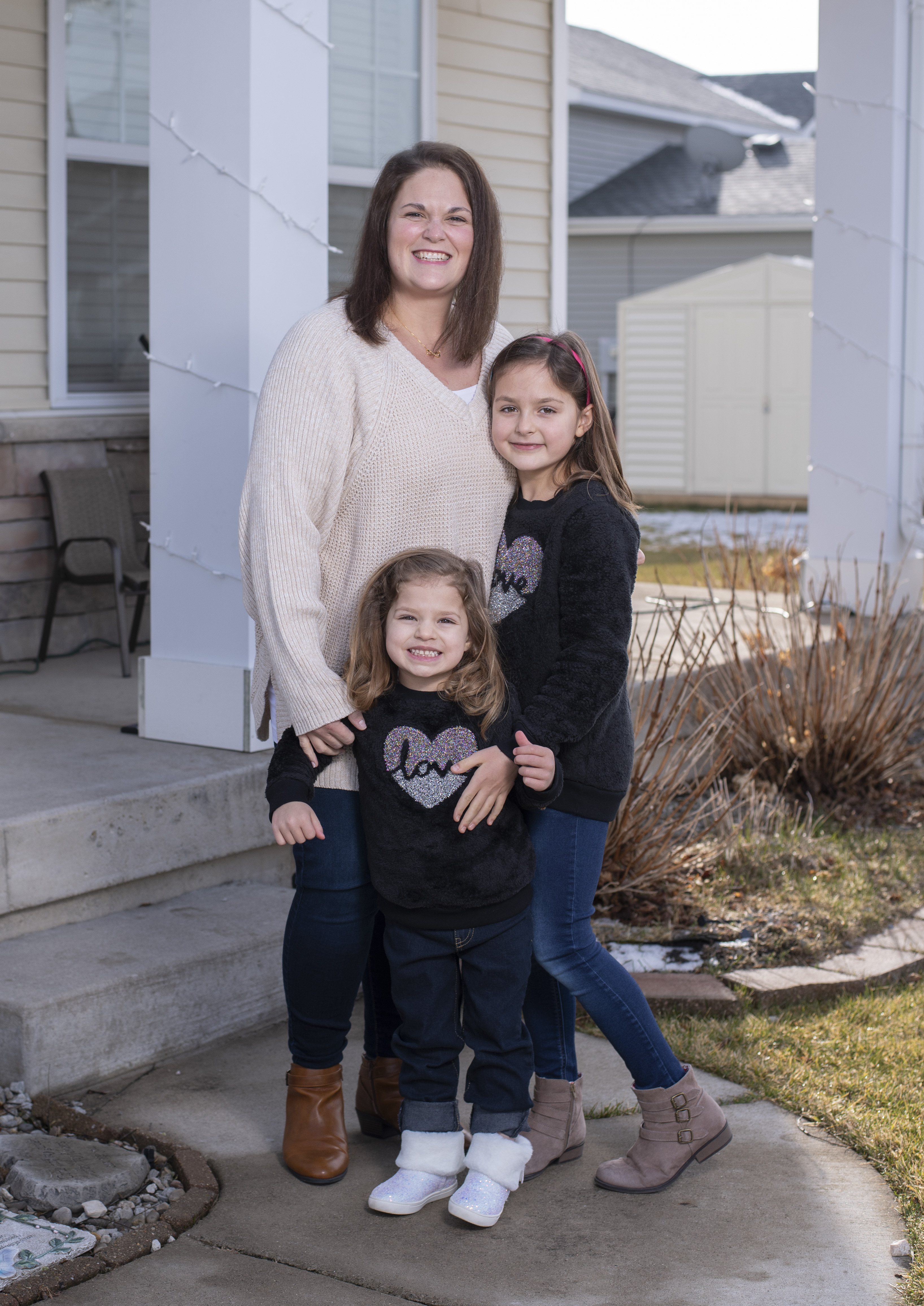Jackie Lyons: ‘I walked away’
MEA member Jackie Lyons cried when she met with her principal to quit her first-grade teaching job last October.

“I said, ‘I don’t want to leave. I love working with these kids, and I love the school community, and I love my teaching partners and all of our school staff.’ Then I walked away and looked back and thought, I’m never going to have that again.”
After nine years of teaching mostly lower elementary-aged children in Mason, Lyons left her position when she became overwhelmed, began suffering health effects, and watched her young family struggling to cope.
Her district had started the year remotely, and Lyons found herself unable to meet the expectations of teaching a full curriculum live on screen all day. The six-year-olds in her class required constant help and supervision, and so did her seven- and three-year-old daughters.
“There would be times where I had to give my students a five-minute stretch because I needed to cry or just step away from the screen for a minute,” she said.
Lyons worried about her toddler becoming a “TV zombie,” and her second grader’s anxiety about schoolwork, and her husband straining to juggle work demands and helping with the kids. She was up until 2 a.m. doing schoolwork and back up at 6 to start again.
“I was just watching my family fall apart,” she said. “I lost my hair, I developed ulcers and gastritis, I gained 10 pounds—and that was in six weeks. Then I had to worry about going back to school in person, which was another level of anxiety for me.”
She took a leave of absence through the federal CARES act, but that option evaporated when her district reopened, which would have allowed her children to return to school and daycare. Pre-existing health conditions make her susceptible to COVID-19, and she was afraid of the risk.
Under her district’s HyFlex model, teachers are addressing the needs of in-person and at-home cohorts, plus full-time virtual learners, at the same time.
She also was buckling under the stress of pre-pandemic state requirements that remained—for example, to do frequent benchmark testing of kids, produce Individual Reading Plans for parents of children who did not meet prescribed benchmarks, and develop and track data goals for her teacher evaluation.
“You still have to show progress as if we weren’t in a crisis, and right now I just want to survive,” she said, calling the lack of regard for educator expertise “disheartening.”
When the threat of the pandemic subsides, Lyons doesn’t know if she will return to the classroom. Expanding mandates flowing down from non-educators— just in the decade since she began her career—are often developmentally inappropriate and detrimental to learning, she said.
“I have had many teacher friends say to me, ‘You are doing the right thing. If I could, I would.’ And that’s hard, because if I’ve left and you leave, then who will be around to teach the children?”
Read how Lyons’ principal is hoping to stem educator losses.
Read more stories from the series, “What it’s Like: COVID Vignettes”:
Karen Moore: secretary with a purpose
Karen Christian: COVID ICU survivor
Jacob Oaster: leader, teacher, innovator
Amy Quiñones: Charting New Waters
COVID-19 Q&A with Paula Herbart
Union Presidents Lead through Unprecendented Crisis
Jill Wheeler: On Books, Kids, and ESP
Gary Mishica: His Work is Hobby, Joy, Passion
Demetrius Wilson: ‘We’ve made it work’
Shana Barnum: ‘It’s heart-wrenching’
Claudia Rodgers: Committed to her Work
Danya Stump: Building Preschool Potential
Rachel Neiwiada: Honored on National TV
Tavia Redmond: ‘Let me tell you about tired’
Gillian Lafrate: Student Teaching With a Twist (or two)
Jaycob Yang: Finding a Way in the First Year
Julie Ingison: Bus Driver Weaves Love into Job
Chris DeFraia: Sharing a Rich Resource



